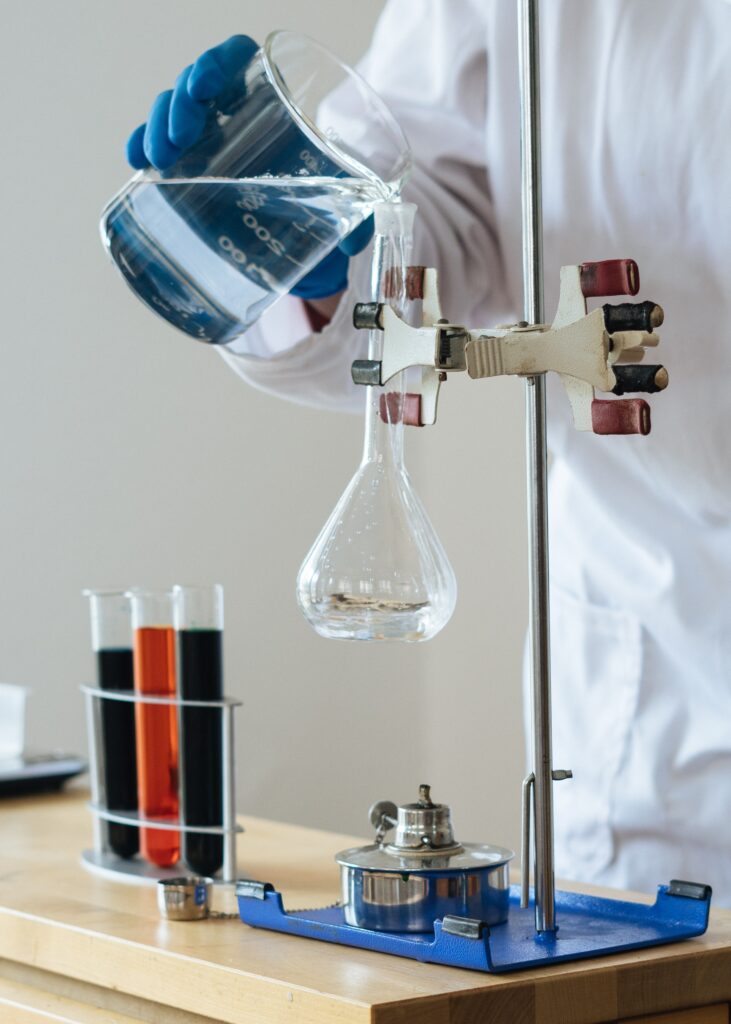First, I want to start out by saying, congratulations! I know it doesn’t feel like a celebration now that you’re about to take organic chemistry, or you are currently taking chemistry, but this is something to be proud of.
I don’t know about you, but the simple act of getting into organic chemistry was not a simple feat at all. I faced much failure and many setbacks before getting to the point of taking o-chem. Here I will share a few tips and tricks that helped me pass o-chem with an A.
Tip #1: Get a Model Kit
In my first attempt with o-chem, I didn’t bother with getting a model kit, and it severely held me back. I thought if I studied enough, I wouldn’t need one. That was my first mistake. The benefit of having a model kit is you can hold, touch, and see the molecule in your hand. You have to create it, so there is also an element of needing to understand what you are building. Once you build the model, you can see and rotate the molecule at different angles, and sometimes seeing something from a different angle can help you work through the issue you might be having. O-chem is a very visual and conceptual course and a model kit a great tool to help aid with the visual component of the class. Please do yourself the major favorite and buy yourself a kit. You can find them on Amazon for fairly cheap. I used this model kit and it served me very well.

Tip #2 Buy a Whiteboard
I can’t tell you how many countless papers I used to practice on just to throw them away. This goes into the next tip, but part of the study process is going to include drawing the figures multiple times, over and over again until you can visualize the molecules in your head. Practice leads to success, and practice will ultimately be the method that could make difference between the A or the B. Buying a whiteboard will not only be more eco-friendly because you are saving more paper, but you can make as many mistakes or practice as much as you want without wasting your notebook for proper notes with practice drawings. This in turn, can help you stay better organized with your notes, and make it easier to navigate through you study notes.
Bonus tip: Go the extra mile and buy colored dry erase markers so you can differentiate between different elements!
Tip #3 Study Everyday
This might seem obvious, but unfortunately there is no secret to earning an A in o-chem other than putting the work in daily. Carve out an hour or two per day to study. This looks different for everyone, but I would dedicate 3+ hours daily to study the lab materials, reading materials, and then do the application by practicing the problems over and over again until I felt comfortable to move forward. Everything builds upon each other so it’s essential to get the fundamentals down so you can be set-up for success when the real tricky stuff comes around.
If possible I also suggest downloading the e-book version of your book that way you can have it available on all your devices and you can access it anytime, anywhere. Studying in different places and different times might help you understand topics better because of the constant exposure.
Here are some of my favorite study tools I used religiously:
1. Organic Chemistry as a Second Language: First Semester Topics
This is a little workbook that includes practice problems and solutions. The workbook covers most topics covered in the first semester of o-chem. This workbook is useful because it goes through concepts and problems step-by-step, and it even provides examples of the common mistakes students make when solving these problems, which I found extremely applicable and helpful.
2. The Organic Chem Lab Survival Manual: A Student’s Guide to Techniques
If lab is where you struggle, (ahem, me) I highly recommend this manual. This manual is useful in understanding the basic techniques labs performed, and explains each step of lab procedures. This manual also writes with a sense of humor, which helps to make the lab procedures a little humorous and relatable.
Lab can be intimidating. One of the more striking things I learned in the first day of lab is that you work independently, you don’t have a lab partner. You share a bench with other students, but when comes to setting up the lab, measuring out your materials, and calculating your results, you’re on your own. As someone who was already uncomfortable in lab with a partner, this was a terrifying reality, but take heart! Just know that you’re not alone, and other students in that room are probably feeling the same way as you. Although you won’t have a lab partner per-say, I highly encourage you to find someone at your bench you appoint as your “unofficial lab partner”. This can be someone who can help you during times when you get stuck on the calculations, or need help setting up a lab because all the glass, tubing, and metal pieces can easily become disconnected, or fall and break (yay, glass!). You might even be given the chance to help someone else, and that can often boost your own self-confidence! This unofficial lab partner can also help you pass the time and have a little fun in-between solving calculations and waiting for an experiments to finish. Labs can last anywhere from 3-5 1/2 hours – no joke. Surprisingly the time does go by quickly, but having a friend or two in lab can definitely make this experience a little less daunting.
Nutrition Note: Bring snacks! 5+ hours in a room is a long time, and some snack can help re-charge that hard-working brain of yours! Here are a few packable, travel-friendly snack suggestions.
Tip #4 Youtube is Your Best Friend
Let’s be honest, science teachers are brilliant, but they don’t always explain things in a way all students need to hear. This is where Youtube comes in. YouTube can be a fabulous resource to use to reinforce or re-explain concepts. YouTube can also be a source of distraction, (ahem, me.) so use your time wisely. It’s tempting to open up the YouTube screen and want to become another victim of click-bait, but resist! You will have your time to decompress, but right now it’s about nomenclature, stereochemistry, substitution & elimination reactions, and my favorite: resonance.
Tip #5 Take Breaks
This is a tip I have to constantly remind myself of. Taking breaks so important. Stepping away for an hour isn’t going to halt or hinder your progress, but not taking breaks can lead to burn-out and feelings of overwhelm. Even as I write this I could be studying for my biochemistry or applied nutrition class, but there are other aspects of my life that deserve my attention to, like my blog! I have learned this the hard way. You’re allowed to have fun while in school. It doesn’t always need to be nose to the grind stone, it is all about balance. If you are someone who struggles with adding in fun, like myself, pencil it in to your calendar. If it helps, you can always set yourself a reminder in your phone that notifies you to take a break. Make sure you take time for yourself to eat balanced meals and get some form of movement in the day, even if that’s just a 20 minute walk around the block. You are more than your grades and studies. Education is a priority, but it shouldn’t be all-consuming.

